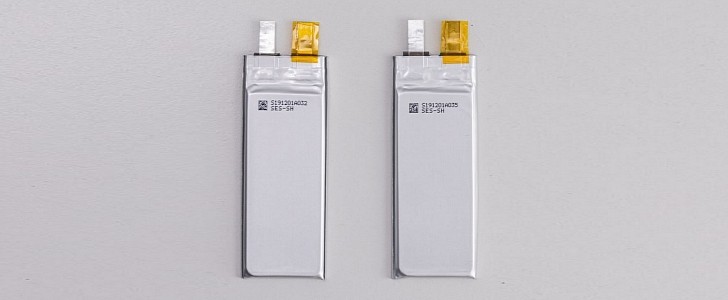The solid-state cell race will continue until at least the first commercial battery is released by any contenders. We expect it to continue with the other solutions presented until one of them prevails. However, there may be an alternative to those cells, and Hyundai is betting around $100 million that SES (SolidEnergy Systems) can deliver it.
The company is an MIT spin-off created in 2012. According to the company’s page, it has pursued to develop solid-state cells until its founder, Qichao Hu, developed a non-flammable, quasi-ionic liquid electrolyte that manages to reduce the formation of dendrites and develop a feasible lithium metal battery.
Dendrites are the archenemy of lithium-ion batteries. They are needle-like structures that perforate cell separators and create short circuits that make batteries fail and eventually catch fire. In lithium metal cells, they are particularly active, which prevented a commercially viable battery of this kind until now.
SES’s solution must be so trustworthy that the company does not fear dendrites will be an issue. With that, its cells can deliver more than 400 Wh/kg and more than 1,000 Wh/l of energy density. To put that under the proper perspective, the best lithium-ion cells in electric cars nowadays deliver 260 Wh/kg and 730 Wh/l. Volvo and Northvolt promised to reach 1,000 Wh/l by the end of the decade...
The higher the energy density, the more a vehicle can travel with a single full charge. Either that or you can reduce the size of the battery pack for the same range. With the weight savings, a given vehicle will go even further with a battery pack with the same capacity as current ones.
SES had to make do with the A123 labs in Waltham, Massachusetts, to develop its technology. That forced the company to use the same machinery used for current lithium-ion cells. Without the need to invest in new equipment, a common plant could be converted to produce the lithium metal cell developed by SES with minimal investments.
The first product created by SES is the Hermes cell, which is designed for drones. It seems to be already for sale, but we will confirm that with the company. The lithium metal cell for automotive applications is called Apollo, and SES promises to start delivering it in 2022. That’s way earlier than all companies developing solid-state cells can promise to have something ready. Hyundai’s bet on SES may prove to be a wise one.
Dendrites are the archenemy of lithium-ion batteries. They are needle-like structures that perforate cell separators and create short circuits that make batteries fail and eventually catch fire. In lithium metal cells, they are particularly active, which prevented a commercially viable battery of this kind until now.
SES’s solution must be so trustworthy that the company does not fear dendrites will be an issue. With that, its cells can deliver more than 400 Wh/kg and more than 1,000 Wh/l of energy density. To put that under the proper perspective, the best lithium-ion cells in electric cars nowadays deliver 260 Wh/kg and 730 Wh/l. Volvo and Northvolt promised to reach 1,000 Wh/l by the end of the decade...
The higher the energy density, the more a vehicle can travel with a single full charge. Either that or you can reduce the size of the battery pack for the same range. With the weight savings, a given vehicle will go even further with a battery pack with the same capacity as current ones.
SES had to make do with the A123 labs in Waltham, Massachusetts, to develop its technology. That forced the company to use the same machinery used for current lithium-ion cells. Without the need to invest in new equipment, a common plant could be converted to produce the lithium metal cell developed by SES with minimal investments.
The first product created by SES is the Hermes cell, which is designed for drones. It seems to be already for sale, but we will confirm that with the company. The lithium metal cell for automotive applications is called Apollo, and SES promises to start delivering it in 2022. That’s way earlier than all companies developing solid-state cells can promise to have something ready. Hyundai’s bet on SES may prove to be a wise one.







